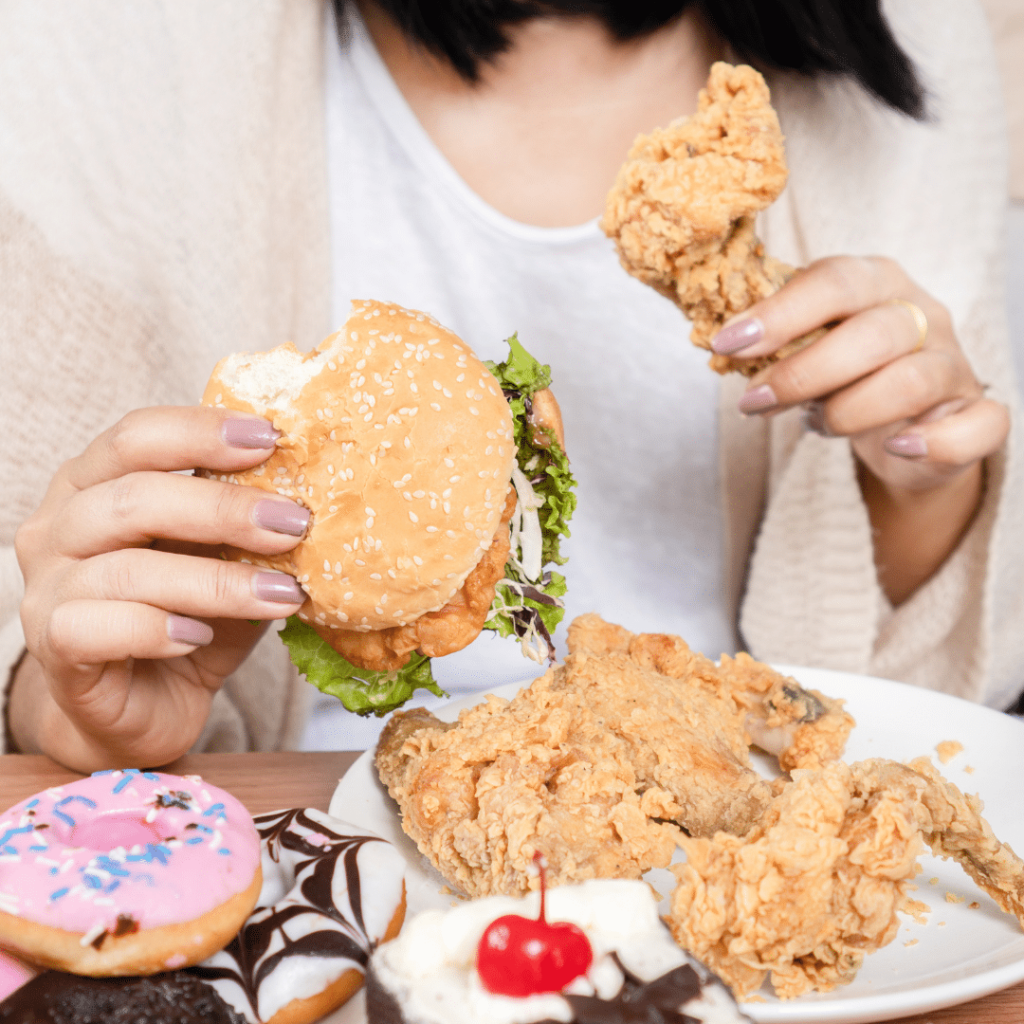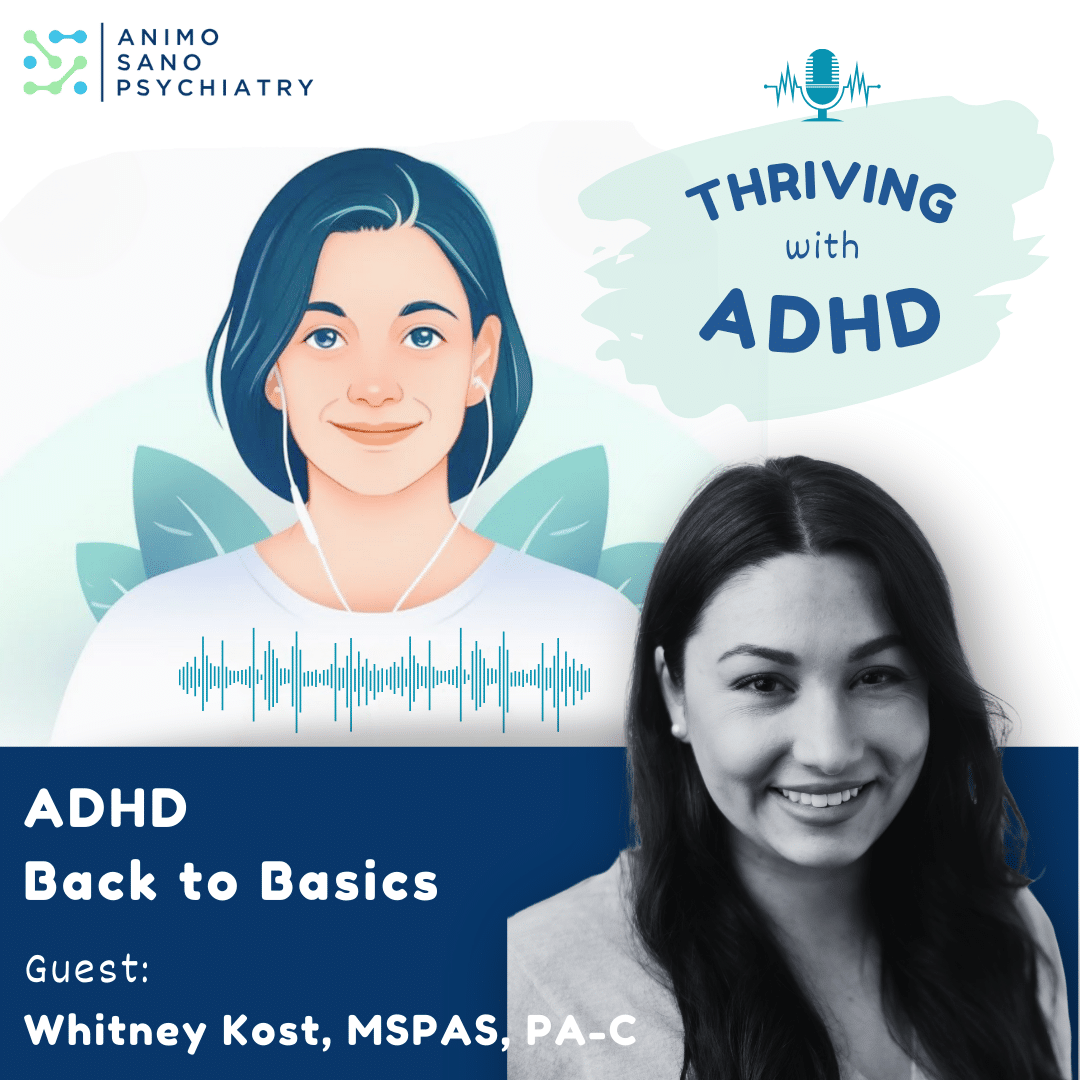
Binge eating is a behavior characterized by consuming large quantities of food in a short period, often accompanied by feelings of shame, guilt, and a loss of control. For many, it’s more than just a momentary lapse in dietary discipline; it’s a complex interaction of psychological, emotional, and biological factors. When paired with Attention-Deficit/Hyperactivity Disorder (ADHD), binge eating can become a recurring and distressing challenge.
What Is Binge Eating?
Binge eating differs significantly from overeating. It’s not just about eating a large meal or indulging in comfort foods occasionally. Binge eating disorder (BED) is recognized as a mental health condition and the most common eating disorder in the United States. Symptoms of BED include:
- Eating unusually large amounts of food within a short period.
- Feeling unable to stop eating, even when uncomfortably full.
- Eating in secret due to embarrassment or shame.
- Experiencing significant distress after binge episodes.
Approximately 2.8 million adults in the U.S. meet the criteria for BED, according to the National Eating Disorders Association (NEDA). What makes it particularly challenging is the cyclical nature of binge eating—emotional triggers lead to overeating, which then results in guilt, creating a loop that is hard to break.

The ADHD Brain: A Perfect Storm for Binge Eating

The connection between ADHD and binge eating lies in the characteristics of the ADHD brain. ADHD affects the prefrontal cortex, the area of the brain responsible for executive functions like impulse control, planning, and decision-making. When these functions are impaired, behaviors like binge eating can occur more frequently.
- Dopamine Dysregulation: Dopamine, a neurotransmitter linked to the brain’s reward system, plays a central role in ADHD. Those with ADHD often have lower dopamine levels, leading to a constant search for stimulation or reward. Eating, especially foods high in sugar and fat, releases dopamine, temporarily satisfying this craving for stimulation. This “reward-seeking” behavior can create a pattern of turning to food for a quick dopamine fix.
- Emotional Regulation Challenges: Emotional dysregulation is another hallmark of ADHD. People with ADHD may struggle to manage stress, frustration, or boredom effectively. Food often becomes a coping mechanism, offering comfort or distraction from overwhelming emotions. However, this emotional reliance on food can escalate into binge eating over time.
- Impulsivity and Loss of Control: Impulsivity, a core feature of ADHD, can lead to unplanned and excessive eating. The inability to pause and evaluate whether one is truly hungry makes it challenging to resist binge episodes. This lack of control reinforces the cycle of binge eating and the emotional toll it takes.
The Psychological Impact of Binge Eating in ADHD
Binge eating doesn’t only affect physical health—it has profound psychological consequences. For individuals with ADHD, binge eating can exacerbate feelings of low self-esteem, shame, and frustration, often leading to a sense of failure or inadequacy. This negative emotional spiral can worsen ADHD symptoms, creating a vicious cycle that’s difficult to escape.

Understanding Impulse Control in ADHD and Its Role in Binge Eating
To truly comprehend why individuals with ADHD are more prone to binge eating, it’s essential to examine the science of impulse control:
- Prefrontal Cortex Underactivity: The prefrontal cortex governs impulse control, decision-making, and long-term planning. In ADHD, this area of the brain functions less effectively, making it harder to resist urges like binge eating.
- Hyperfocus States: Paradoxically, people with ADHD can experience hyperfocus, a state of intense concentration. During hyperfocus, awareness of physical hunger cues can diminish, leading to extended periods of not eating, followed by a binge episode when hunger becomes overwhelming.
- Reward Sensitivity: Foods high in sugar and fat activate the brain’s reward centers more powerfully in individuals with ADHD. This heightened sensitivity can lead to stronger cravings and a greater likelihood of binge eating behaviors.
Final Thoughts
The connection between binge eating and ADHD is complex but not insurmountable. By understanding the underlying mechanisms that contribute to binge eating behaviors, individuals can take meaningful steps toward recovery. In this article we explored the connection between binge eating and ADHD and the underlying factors contributing to disordered eating patterns, in the next article we will explore how to break the cycle.
Responsibly edited by AI
Other Blog Posts in
Animo Sano Psychiatry is open for patients in North Carolina, Georgia and Tennessee. If you’d like to schedule an appointment, please contact us.
Get Access to Behavioral Health Care
Let’s take your first step towards. Press the button to get started. We’ll be back to you as soon as possible.ecovery, together.




